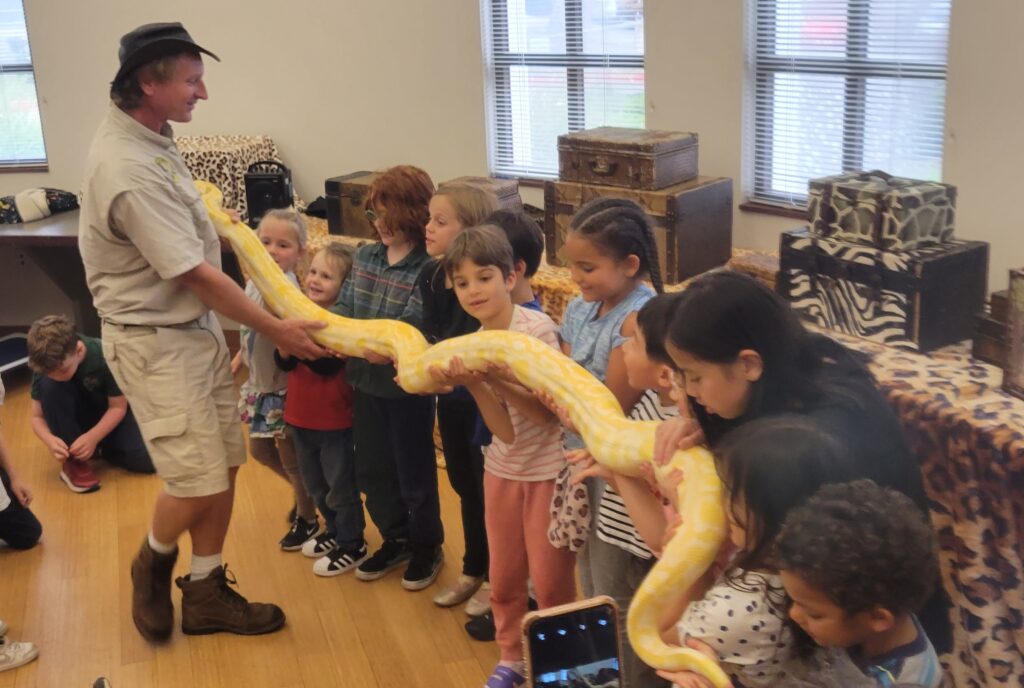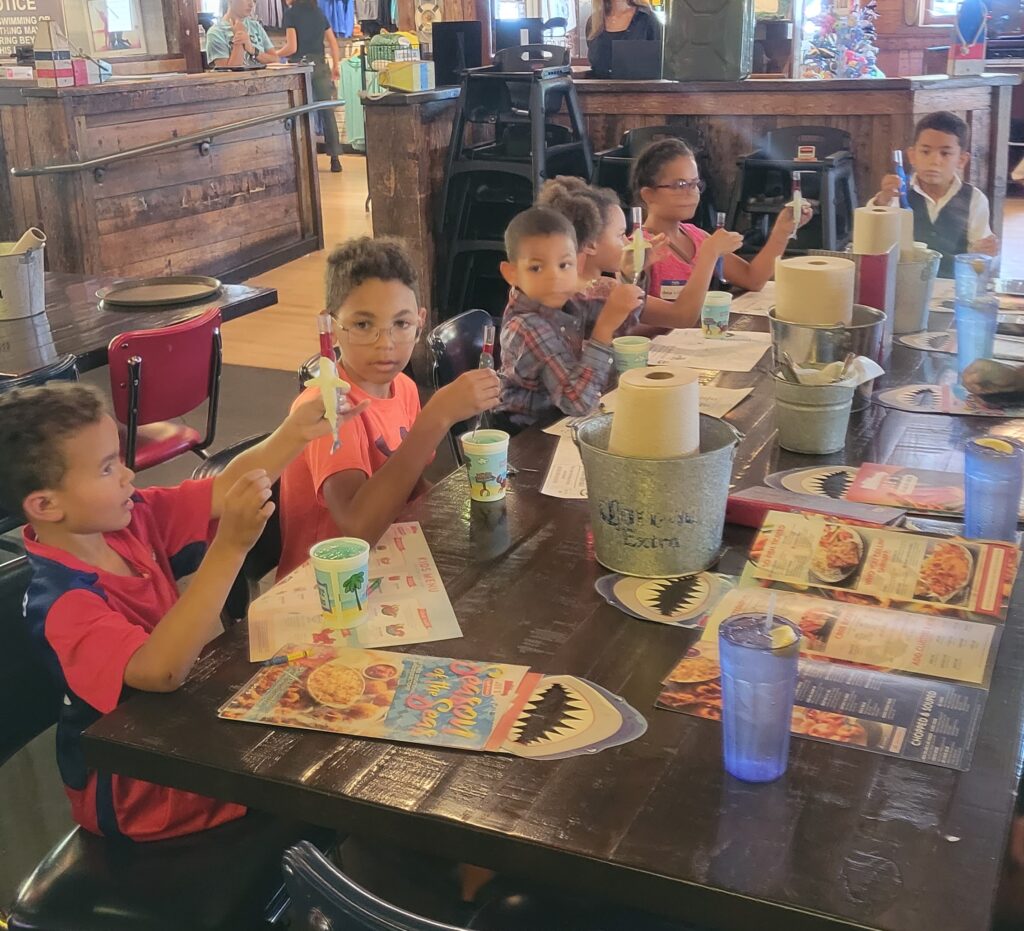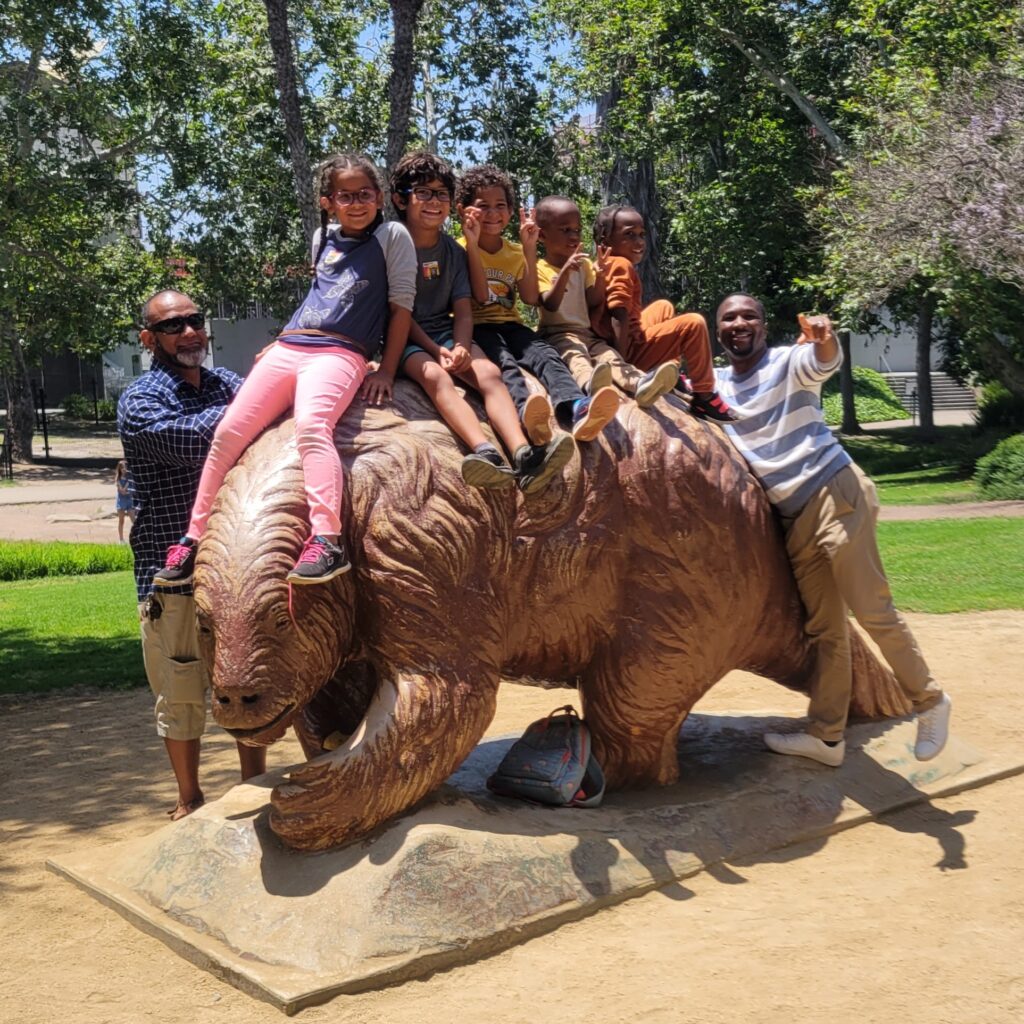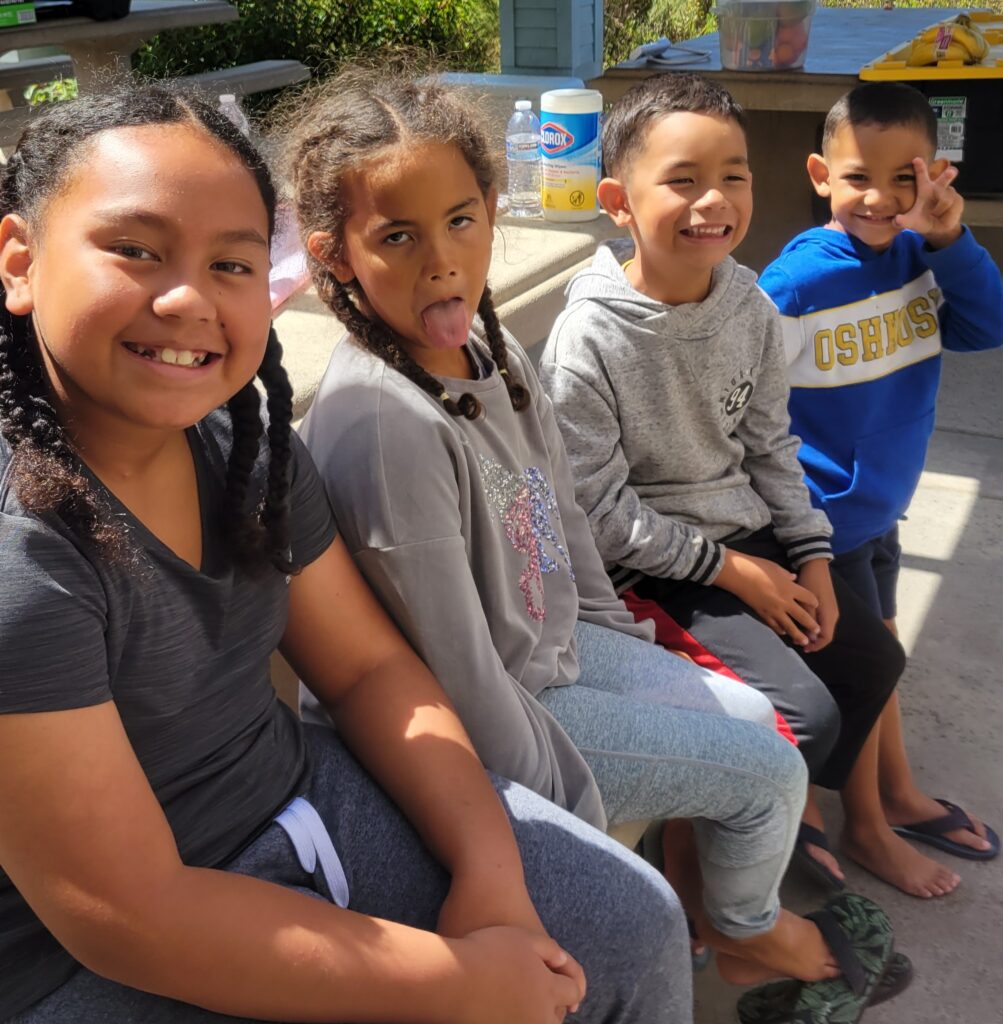This is our fourth year homeschooling (and I still feel like I’m completely winging it), but in the last year, I have started to get many more questions from newly-made acquaintances at the park and well-meaning friends who seem genuinely concerned about my children. The most common question by miles is, “But what about socialization?” Having spent many more hours on social media than I should, I know other homeschool moms also face this question regularly.
I have some scripted answers, depending on the situation. If it’s clear that the person is not really interested in the answer, I might say, “we spend a lot of time with our extended family and our church family,” and then move the conversation in a different direction. If they seem interested in the answer but in an antagonistic way, I’m likely to respond, “I don’t think the set up of modern day school is exactly conducive to good socialization either.” However, if they seem genuinely curious as to how a homeschooled kid could get socialization, an honest answer starts with, “It takes some intentionality to ensure they spend time with people.”

Even though the three kids and I spend most of our days together, just the four of us, for most of our evenings and weekends, we are around other people. Since we live in an apartment now with no easy way for the kids to go outside at will, one of my daily priorities is getting us outdoors as soon as I’m done with work. We spend time at the museums, the library, the parks, and the pool near our house. The kids find new friends on almost every trip, and I’m able to talk to moms who are also hanging out on the sidelines. This environment allows them to “socialize” all they want. No one will get in trouble for talking or getting out of line. They can revel in their free play time.
I also observed a beautiful interaction when we went on our family camping trip to the beach. While Ana Lia is hopelessly drawn to the ocean, Eliam has reservations about activities that come with inherent risk. We spent 8-10 hours at the beach each day on this camping trip, so he found a comfortable place to play in a little freshwater stream that sliced through the sand on its way to the ocean. This stream was a few feet deep and had a distinct current in it. There was a young man, probably about 14, who had something like a short surfboard in the stream. He would get a running start, hop on the board, and ride the stream current to the ocean waves. Eliam was mesmerized.

When I went to check on him a few minutes later, he had introduced himself to the young man, who was instructing Eliam on how to perform this feat. He let Eliam run with the board and attempt to ride it, time after time. My anxious heart wanted to tell that young man that he didn’t need to let Eliam ride the board; my son could just play in the sand – no need to be inconvenienced for a small child. But thankfully, I had enough self-control to take a few steps back and simply watch the two of them together. This young teenager seemed to be enjoying himself as much as Eliam was. As Eliam gave it his best try and yet tumbled off the board every time, his new (and somewhat older) friend laughed, grabbed Eliam’s hand, and encouraged him to try again.
To me, this interaction is the pinnacle of the socialization we actually want for our children. I don’t think we are looking for regimented socialization in which children are stratified by age and further stratified by ability, but one in which they learn to connect with people of a variety of ages, backgrounds, and talents. My six year old felt completely comfortable walking up and asking for help, and his new friend felt completely comfortable offering it.

I went to a small Christian school for middle school and returned to public school for high school. Having spent four years out of the public school system, my mom and I didn’t know that there were certain classes that I needed to take in order to do AP classes. Graduation requirements stated that I had to take either World Geography or World History. My older brother was going into his sophomore year and recommended I take World Geography; so I signed up for that. When I learned that I had to take World History in order to get into AP history classes, I went back to take it as a sophomore.
This experience was enlightening for me. The friends I made in World Geography were rarely in any of my other classes, and all my friends from my other classes had all taken World History together during our freshman year. I realized that I probably would have never met most of the people from World Geography because we were placed on different tracks and those tracks rarely mixed. Certainly, I socialized at school, but the school structure limited that socialization to a small group of students who had the same long term life plans that I did.
When I got to college, I had a similar experience. I went to a very small all-women’s college, and they separated us into our freshman dorms by interest. To this day, my best friends from college are the ones who I shared a hallway with during my freshman and sophomore years. They had all the young women in Ida B Wells on a separate floor, which unintentionally segregated our dorm by race. They had all the students who had gotten a specific academic scholarship on a specific floor, which segregated our dorm by interest. This again led to a very limited socialization with people who were different. So, when people ask me about socialization for homeschoolers, I tend to think that my kids are offered greater socialization opportunities than many kids in traditional school.

They are allowed to socialize as we go through life. In the example above, Eliam readily played someone twice his age. When we are at the park, they will often see a smaller kid running around and start to help that child get over obstacles. I also ensure that they are around adults who love them, an important aspect of learning to be an adult themselves. No where else in life do we get sorted by our ages and abilities; my coworkers touch the entire spectrum of ages, as do my friends from church, and my close family members. So why do we think the best way to socialize children is in a fabricated system?
I want to be clear that I am not at all against traditional school. I don’t know that I will homeschool forever, and there may be a time when it is best for us to send our kids to one. But people often feel free to question our decision to homeschool, and socialization is frequently the first question they ask. In so many ways, it seems logical that they ask the same question of the school system.
👏🏾👏🏾👏🏾
Wow, thank you for this blog post! For a long time I’ve pushed away the idea of ever homeschooling my daughter because of this exact question. So thank you for sharing your experience, how you navigate the “socialization situation” and your thoughts. Very intriguing ☺️